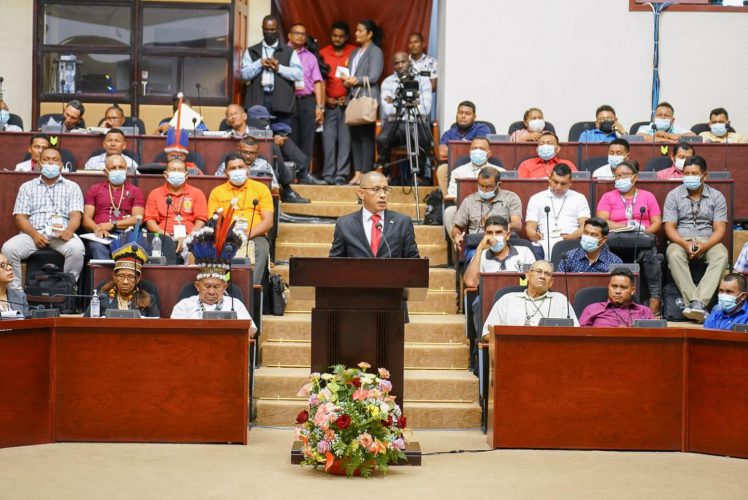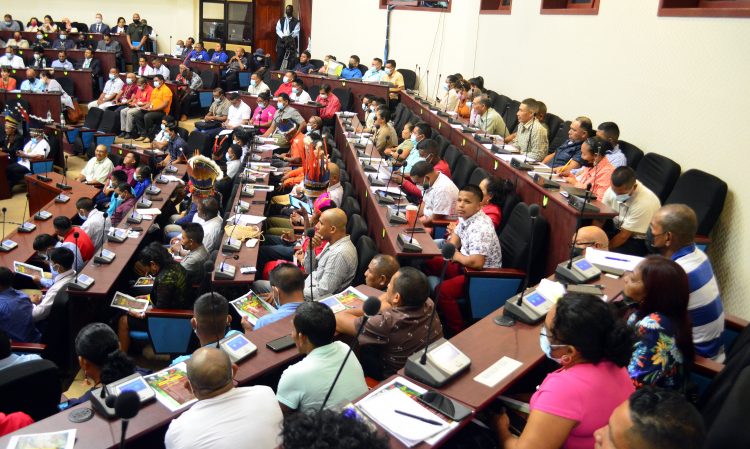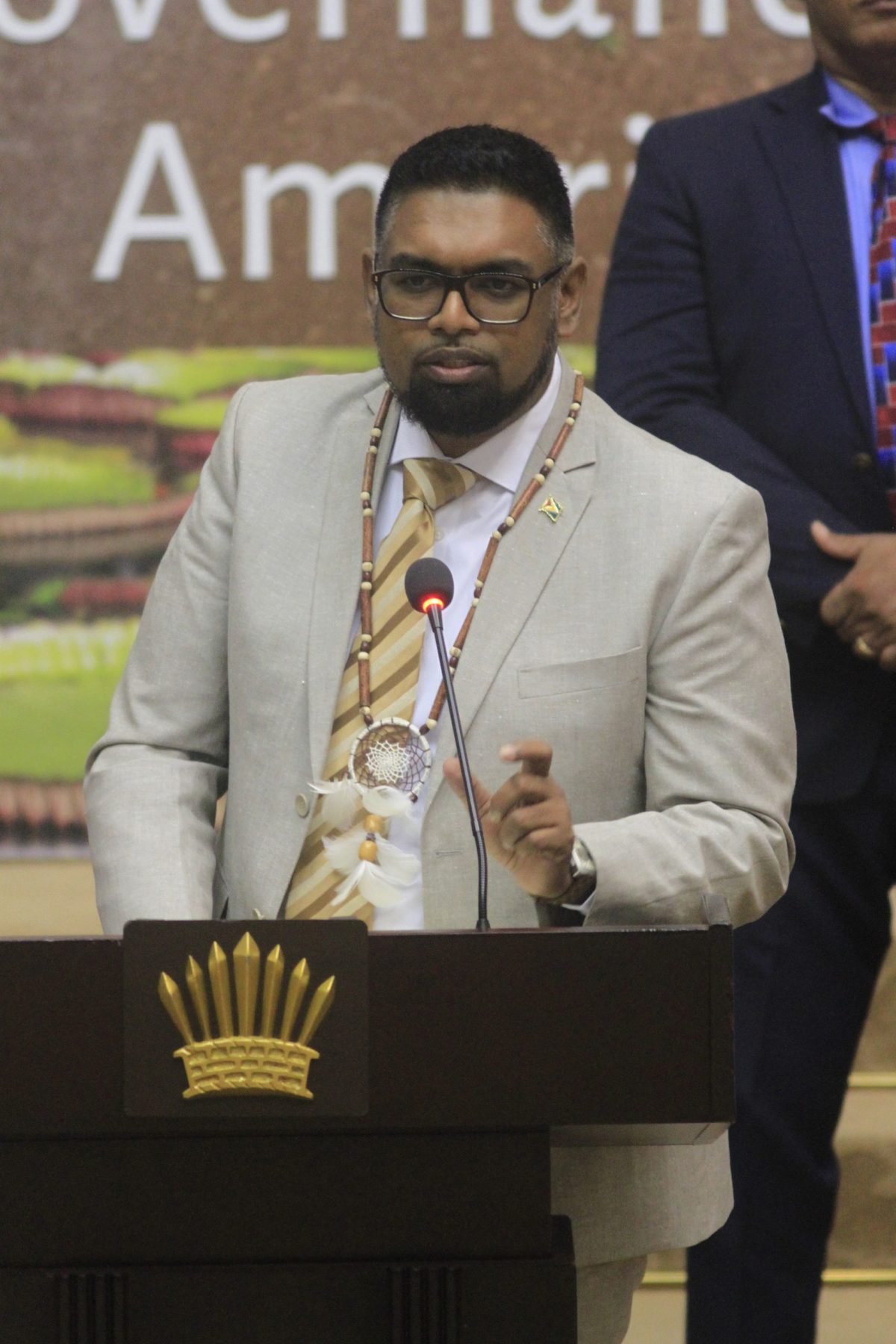President Irfaan Ali has denied that the government is trying to take control of the National Toshaos Conference (NTC) agenda.
“We have no interest in taking over your agenda,” he told Toshaos at the opening of the NTC yesterday at the Arthur Chung Conference Centre (ACCC).
“Our only interest is in promoting your agenda, and that is why the government must be integrally involved here… We have to answer to you,” he said. He noted that the objective of the conference is to listen to Indigenous leaders and understand their perspective.


Days before the conference was set to begin, indigenous rights groups and some toshaos accused the Ministry of Amerindian Affairs of trying to hijack the conference due to a draft of the agenda indicating that the remaining four days of the conference would be chaired by the Ministry’s permanent secretary.
The Ministry was also accused of excluding the former executive committee from the planning of the conference.
“We brought you out here not to tell you what to do but to listen to you, to listen to your ideas, your needs, and after listening to you to craft a plan of action that will improve the life of every single Amerindian community in this country,” he said.
The agenda has since changed and the entire conference will now be chaired by the new Chairman of the National Toshaos Council executive, Derrick John and a representative of the Ministry. Minister of Amerindian Affairs, Pauline Sukhai also refuted the accusations, saying that ministry’s representatives met with the outgoing NTC chairman Nicholas Fredericks and the Secretariat.
Fredericks was scheduled to speak at the opening ceremony but did not attend the conference. According to Sukhai, travel arrangements were in place for Fredericks to attend the conference, but he did not get on the flight. (Fredericks has a different version of events. See letter on page 7.)
The five-day event is being held at the ACCC under the theme “Good Governance and Fast-Tracking Amerindian Development”. Sukhai, in remarks at the opening ceremony, said the conference’s theme signals Government’s approach to servicing Amerindian Development under ‘One Guyana’.
In his feature address at the opening ceremony, Ali told leaders that like the rest of the Guyanese population, Indigenous Peoples must benefit from equal access to development opportunities.
“The commitment of every successive PPP/Civic Government was to do the best we can do for Amerindian communities and Amerindian people. Not just because we want to do it, but because you are no different from the rest of the population. And you must be treated with the same respect, with the same dignity and honour like all of the population. Those are the fundamental principles that we adhere to—that we support.”
He noted that the preservation of the way of life and cultures must not be at the expense of the quality of life and assured leaders that the government is working to ensure that Indigenous Peoples will have equal access to resources.
He reminded Indigenous leaders that the conference is the perfect opportunity to share their ideas and perspective with the government so together they can craft a plan of action that will result in the improvement in the lives of every Indigenous person in Guyana.
“In the principle of good governance, we have to consult with people. We have to listen to people.”
Ali noted that while billions of dollars have already been spent to enhance the quality of life of Guyana’s indigenous population, in the two years since the PPP/C came into government, this amount continues to increase as the government will continue to further improve the quality of life in several areas including agriculture, education, health, housing, infrastructure and tourism.
“We have made it clear for Amerindian villages, water will remain a social good. What that means is that for your villages, as long as we are here, you will not have to pay for that water. That will be a cost that the Government will absorb. For you and your communities, it’s treated primarily for its social good and social value, not as an economic commodity.”






